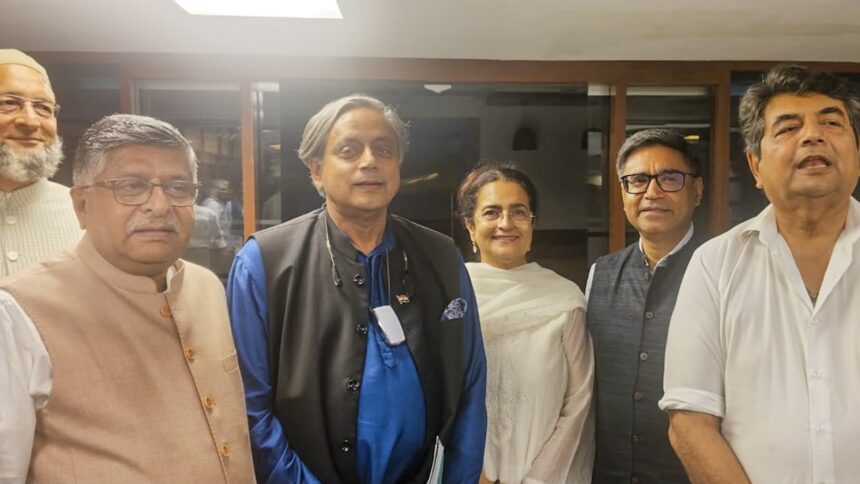India’s multi-party outreach to rally global support for its war against terror emanating from Pakistan is not just aimed at major countries and the West Asian region, but also at countries that will be members of the UN Security Council (UNSC) next year.
Latvia, Democratic Republic of Congo (DRC), Bahrain, Liberia and Colombia will be part of the UNSC for a two-year period from January 1, 2026 till December 31, 2027.
Pakistan is a non-permanent member of the UNSC in 2025-2026. As part of its efforts to isolate Islamabad internationally, India wants to convey its concerns about Pakistan’s support to terror groups and terror infrastructure. These countries will then be better briefed on how to respond to Islamabad’s talking points when they are on the Security Council, according to sources.
So, the Indian political delegations will be touring the world to reach out to the current members of the UNSC — both permanent and non-permanent – and to those who will be at the table next year.
The teams will go to countries which are permanent members of the UNSC — the US, UK, France and Russia, but leaving out China, which is seen as an all-weather friend and a benefactor of Pakistan. Chinese-made weapons and defence equipment were used by Pakistan in its military response between May 7 and 10.
Among the non-permanent members, they will tour countries whose terms expire in December this year — Algeria, Guyana, Republic of Korea, Sierra Leone and Slovenia – as well as the countries which will replace them next January. Barring Pakistan, they will visit countries whose terms expire in December next year – Denmark, Greece, Panama and Somalia.
India’s outreach to the UNSC members (both current and incoming) is important. and Islamabad had a face-off when the UNSC statement was negotiated in New York after the Pahalgam terror attack — Pakistan had the advantage of being a current non-permanent member.
While the UNSC “condemned (the attack) in the strongest terms”, stressing that those responsible should be held accountable and the organisers and sponsors of this “reprehensible act of terrorism” should be brought to justice, India could not get The Resistance Front named in the statement because Pakistan and China blocked the reference.
Besides these countries, which will play a crucial role in future statements and discussions at the UNSC, the teams will also visit key Muslim-majority countries in West Asia and South East Asia — Saudi Arabia, UAE, Qatar, Egypt, Kuwait, Indonesia and Malaysia. These are all prominent members of the OIC grouping and once-strong supporters of Pakistan – they have become more pragmatic and positive on their ties with India.
Barring Canada, with which relations are still in the process of being repaired, the teams are also going to the remaining G7 countries — Germany, Italy, Japan and the European Union. Spain is also added as an important European partner country, which is usually invited for the G20 summit.
Brazil and South Africa have been included as important BRICS partner countries, as well as G20 members. Ethiopia has been included as it hosts the African Union’s headquarters. Singapore, also a major partner country, is located at the information hub of the South-East Asian region.
The teams will be briefed by Foreign Secretary Vikram Misri and senior officials of the Ministry of External Affairs. They are expected to meet fellow parliamentarians, leaders of political parties, think-tanks, media, the strategic affairs community and the wider civil society in these countries, apart from key officials and political figures in the establishments.
In all, 51 political leaders are part of the seven delegations which will brief 32 countries and the EU.








